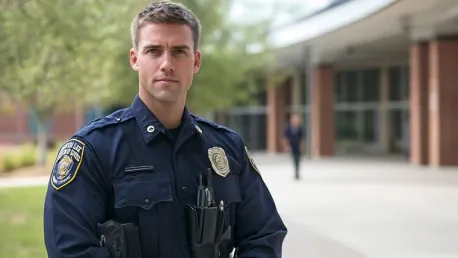The reintroduction of school resource officers (SROs) into Milwaukee Public Schools (MPS) has sparked intense debate and raised complex questions surrounding legislative compliance, community priorities, and the impact on student well-being. This contentious issue is shaped by a mix of state mandates, community concerns, and past experiences, making it a critical subject for the state’s largest school district. The ongoing discussion presents a nuanced challenge: balancing the legislative requirements of Wisconsin Act 12 with the community’s demands for more supportive and less punitive educational environments.
Legislative Background and Compliance
The mandated reintroduction of school resource officers in MPS is stipulated by Wisconsin Act 12, a law enacted in 2023. This law requires MPS to place at least 25 SROs within its schools, a directive that reverses the district’s 2020 decision to end its contract with the Milwaukee Police Department. That decision was influenced by a broader movement against police presence in educational settings, spurred in part by student activism focused on creating safer and more inclusive school environments.
The urgency of complying with Wisconsin Act 12 has created a pressure point for MPS. The state’s Department of Public Instruction (DPI) has emphasized the necessity of adherence to the new law. State Senator John Jagler, in communications with the Milwaukee school board, has underscored the law’s intention to enhance school safety through reliable crime reporting and the presence of SROs. According to DPI officials, the presence of SROs is seen as a critical component in preventing and managing incidents within schools, ensuring a secure learning environment for all students.
Community Concerns and Opposition
Opposition to the reintroduction of SROs in schools has been vocal, with various community advocates raising concerns about the negative impacts of armed officers on students. Ingrid Walker-Henry from the Milwaukee Teachers’ Education Association (MTEA) and Alan Chavoya from the Milwaukee Alliance Against Racist & Political Repression argue that the presence of SROs has historically led to negative outcomes such as increased suspensions, expulsions, and arrests. These consequences have disproportionately affected Black and Brown students, exacerbating existing inequalities within the education system.
Citing a 2021 Center for Public Integrity report, Walker-Henry highlighted that Wisconsin students were referred to police at twice the national rate between 2007 and 2018. Advocates like Walker-Henry and Chavoya push for alternative support systems, such as social workers, counselors, and mental health professionals. They believe these roles would better address students’ needs and improve school safety without causing the adverse effects associated with SROs. Their argument is grounded in a holistic approach to student well-being, emphasizing the importance of creating supportive rather than punitive school climates.
Financial and Administrative Challenges
Milwaukee Public Schools are confronting significant financial and administrative hurdles related to the reimplementation of SROs as required by Act 12. The projected cost of placing 25 SROs in schools is approximately $2 million, a financial burden that will be shared between the City of Milwaukee and MPS. This substantial expenditure adds to the district’s existing budgetary pressures and necessitates careful planning to manage effectively. The financial strain is evident, with district officials voicing concerns about the allocation of resources and the impact on other critical educational programs.
According to MPS interim Superintendent Eduardo Galvan, ongoing efforts are being made to collaborate with the Milwaukee Police Department and other stakeholders. The objective is to draft a memorandum that will establish clear operational guidelines and accountability measures for the SROs, ensuring a sustainable and effective implementation of the law. This memorandum aims to define the roles and responsibilities of SROs in a manner that aligns with the district’s educational mission and addresses community concerns. Stakeholder involvement is crucial in this process, as it ensures that the operational guidelines are comprehensive and reflective of the needs and values of the school community.
Diverse Perspectives on School Safety
State officials and some legislative voices maintain that having SROs is crucial for maintaining safety and order within schools. The presence of officers is seen as essential for quick responses to incidents and reliable crime reporting. DPI’s Executive Director Sachin Chheda has expressed frustration with the district’s slow compliance, stressing the importance of promptly meeting the provisions of Act 12. Proponents of the law argue that the integration of SROs will lead to improved safety outcomes by deterring criminal activity and ensuring prompt intervention when incidents occur.
Conversely, community groups and education advocates continue to emphasize the potential harms of a police presence in schools. They argue that SROs contribute to a school-to-prison pipeline, particularly affecting minority students. Their advocacy for non-police-based support systems is rooted in the belief that such measures create a more conducive learning environment and address the root causes of behavioral issues. This perspective is supported by research suggesting that interventions focused on mental health and social support are more effective in promoting long-term positive outcomes for students.
Looking Forward: Collaboration and Implementation
The reintroduction of school resource officers (SROs) into Milwaukee Public Schools (MPS) has ignited an intense debate, raising intricate questions about legislative compliance, community priorities, and student well-being. This issue brings forth a complex blend of state mandates, local concerns, and historical experiences, making it a pivotal topic for Wisconsin’s largest school district. The ongoing debate highlights a challenging task: reconciling the legislative requirements of Wisconsin Act 12 with the community’s desire for a more supportive and less punitive school environment.
Advocates for SROs argue that their presence can deter crime, handle emergencies more effectively, and foster a safer school atmosphere. They believe that SROs provide essential security and can build positive relationships with students. On the other hand, critics argue that SROs contribute to the criminalization of students, particularly those of color, and that resources would be better allocated toward counselors, mental health services, and educational programs. The challenge lies in creating a balanced approach that addresses both safety concerns and the holistic well-being of students.









